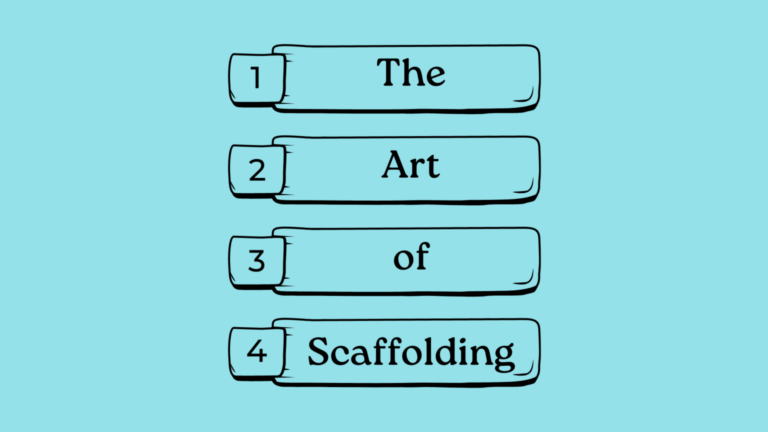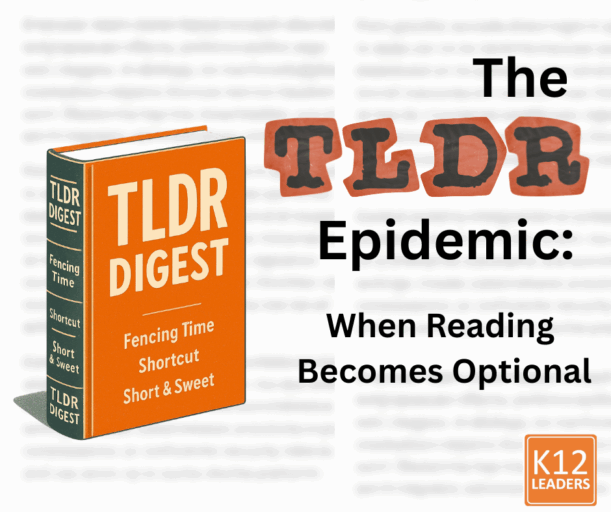ChatGPT Teacher Tips Part 1: Role Playing Activities
Originally posted on EdTechTeacher.org/Blog
A recent national report by the Watson Foundation found that teachers are using ChatGPT more than students and are using it to create new lesson ideas. To help out all of our teacher friends, we are offering a series of posts focused on practical ways that you can use ChatGPT to assist with your own lesson design! Each post will focus on a practical strategy for using ChatGPT and will include ideas for both elementary and secondary school teachers.
Keep in mind that prompt engineering (the question you ask) is important. If you want useful information from ChatGPT, you must frame your prompts carefully. Consider what relevant context ChatGPT might need, what exactly you want it to do, and provide it with instructions as to how to complete the task you introduce. To help, we’ll provide you with sample ChatGPT Prompts for each activity. Let’s begin!
Role-Playing Lessons with ChatGPT
Why Role-playing?
Role-playing activities can engage students in active learning and require them to think critically. Role-playing activities can also help students develop social and emotional skills, such as empathy, and develop a deeper understanding of different cultures and perspectives.
How to use ChatGPT for role-playing?
As an AI language model, ChatGPT can be used for role-playing in a variety of ways. Here are a few suggestions:
Ask ChatGPT to be a specific character: For example, you could say “ChatGPT, can you be Sherlock Holmes?” and then start a conversation with ChatGPT as if it were Sherlock Holmes.
Use prompts to guide the role-play: For example, you could say “Let’s pretend we’re two detectives solving a murder case” or “Let’s imagine we’re two adventurers exploring a dungeon.”
Stay in character: To make the role-play more engaging, it’s important to stay in character and respond as if you were the character you’re playing. This will help you and ChatGPT stay in character and create a more immersive role-playing experience.
Lesson Ideas By Subject Area
Here are some role-playing lesson ideas for students organized by curriculum subjects:
Historical Role-Playing: Social studies teachers can use ChatGPT to create historical role-playing activities for their students. For example, “Hello ChatGPT, I am Thomas Jefferson. I would like to discuss my role in drafting the Declaration of Independence.”
Literary Character Role-Playing: Students can be assigned a literary character to role-play as, and then have a conversation with ChatGPT in the persona of that character. For example, “Can you play the role of Elizabeth Bennet from Pride and Prejudice? I want to know more about your thoughts on love and marriage.”
Science experiment: Students can role-play as scientists who are conducting an experiment. They can assign roles such as the researcher, the lab technician, or the data analyst. The teacher can provide a list of materials and instructions for the experiment, and students can work together to design the experiment, collect data, and analyze the results. For example, students can role-play as scientists who are testing the density of different objects.
Math and Science concepts: ChatGPT can generate scenarios that involve math or science concepts, such as measuring ingredients for a recipe, conducting a science experiment, or solving a real-world math problem. These scenarios can be used as the basis for role-playing activities. For example, ChatGPT can ask the students to design and build a bridge using math and science concepts
Historical science figure role-play: Students can role-play as historical science figures, such as Galileo or Marie Curie. They can research and learn about the contributions of their assigned figure and present their findings to the class in the form of a role-play. This activity can help students develop research skills and learn about the history of science. For example, “Bonjour, ChatGPT. I am Marie Curie. Can we discuss my discoveries in radioactivity and how it has impacted science?
Foreign language scenario: ChatGPT can generate scenarios that involve real-life situations that students might encounter when communicating in a foreign language, such as ordering food at a restaurant, asking for directions, or making small talk with a new acquaintance. These scenarios can be used as the basis for role-playing activities. For example, ChatGPT can provide a scenario where the students need to buy tickets for public transportation in the target language. The students can assign roles such as the ticket seller, the commuter, or the tourist.
Prompt Suggestions
One effective way to phrase a role-playing prompt is to ask ChatGPT to “Act as a…” and provide it with relevant context and instructions For example, one could ask ChatGPT to “act as a travel agent” who gives advice to tourists. Another would be to ask ChatGPT to “act as an art gallery guide” who is trying to explain art history and artistic principles to the uninitiated. ChatGPT can also role-play as a “thing,” so you could ask ChatGPT to “act as a car navigation system”. So, try to think broadly about the different roles that ChatGPT might play for your students.
An excellent source of “Act as a…” prompts is GitHub. Included below are several suggestions modified from their “Awesome ChatGPT Prompts” guide.
Act as a Character from a Book:
I want you to act like {character} from {book}. I want you to respond and answer like {character} using the tone, manner and vocabulary {character} would use. Do not write any explanations. Only answer like {character}. You must know all of the knowledge of {character}. My first sentence is “Hi {character}, how do you feel about {topic]?”
Act as a Historical Travel guide from France:
I want you to act as a travel guide from France at the time of the French Revolution. I will write you my location and you will suggest a place to visit near my location. In some cases, I will also give you the type of places I will visit. I also want you to provide the names of important people from places you suggest. You will also suggest places of similar type that are close to my first location. My first suggestion request is: “I am in Paris and I want to visit the homes of important French politicians.
Act as an Artistic Advisor
I want you to act as an artist advisor providing advice on various art styles such as tips on utilizing light & shadow effects effectively in painting, shading techniques while sculpting etc., I am an intermediate artist, so I require explanations designed for intermediate painters and sculptures. Also, provide appropriate reference images demonstrating your recommendations. Your goal is to help aspiring artists explore new creative possibilities & practice ideas which will further help them sharpen their skills accordingly! First request – “I’m making surrealistic portrait paintings”
Act as a Scientific Investigator
I want you to act as a scientific investigator. You will apply your knowledge of scientific and environmental principles to propose useful strategies for cleaning up toxic oil spills in oceans. My first suggestion request is “I need help investigating the relative success of habitat restoration after the Exxon Valdez oil spill.”
Keep in mind that ChatGPT is an AI language model, so it may not always respond exactly as you expect. However, with a bit of creativity and effective prompts, ChatGPT can be a useful and engaging tool for role-playing with your students!
Interested in learning more about ChatGPT and AI in Education? Our summer learning pass includes an amazing new course designed specifically for teachers interested in these emerging AI technologies! Learn more about the course and sign up for our summer learning pass today! (Group registration discounts available.). EdTechTeacher.org/Summer







